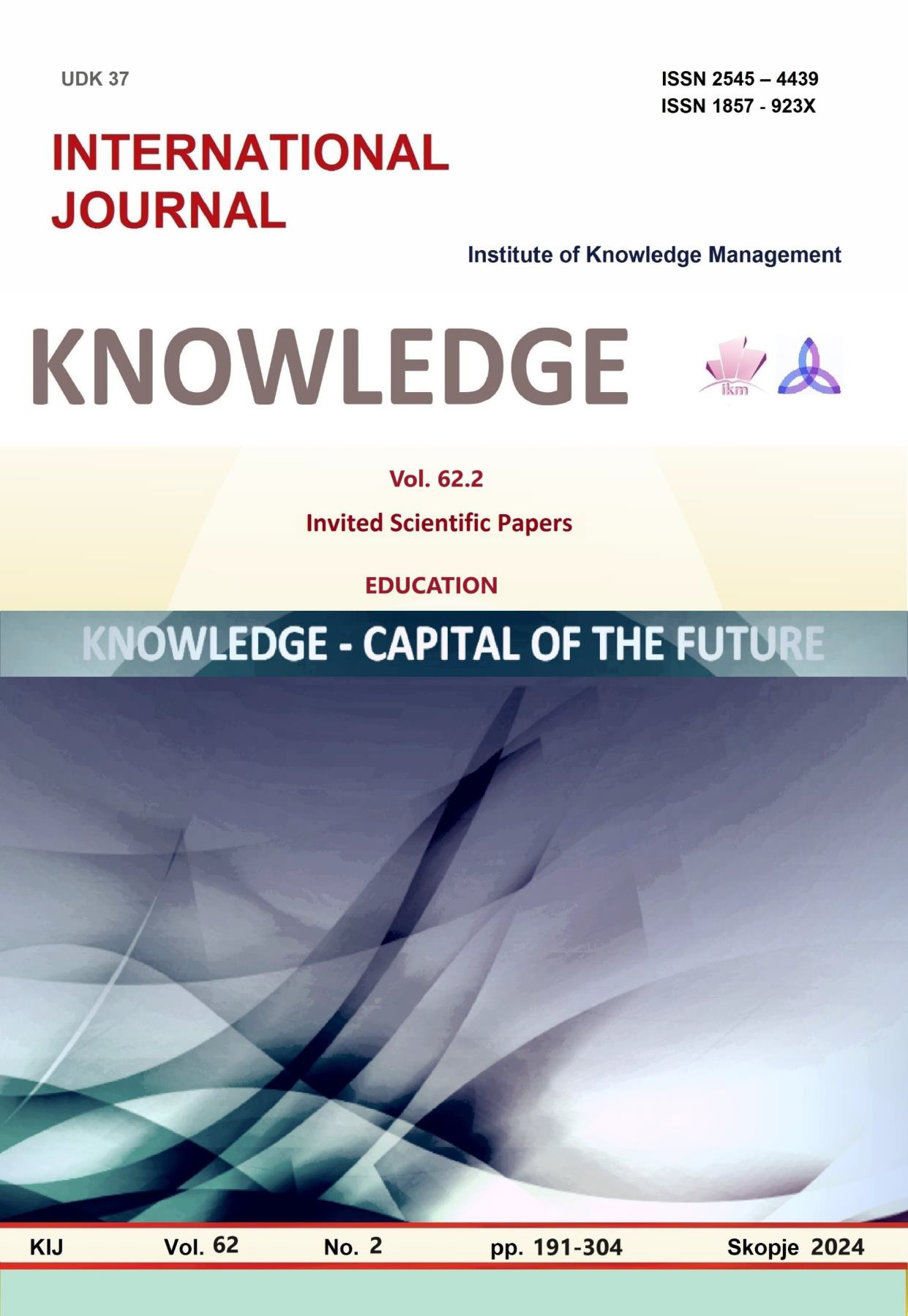PROCESI DHE MJESHTËRITE E TË PYETURIT SI NJË HALLKË E RËNDËSISHME NË FORMIMIN E NXËNËSIT (MODELE TE NDERTIMIT TE TESTEVE NE KAPITULLIN 5,BIOLOGJIA 12 -ZGJEDHJE;NJOHJA QELIZORE DHE SISTEMI IMUNITAR)
THE PROCESS AND QUESTION TECHNIQUES AS AN IMPORTANT FACTOR IN STUDENT EDUCATION (TEST CONSTRUCTION MODELS IN CHAPTER 5, BIOLOGY 12 - ELECTIVE; CELLULAR RECOGNITION AND THE IMMUNE SYSTEM)
Author(s): Ariana StriniqiSubject(s): Education
Published by: Scientific Institute of Management and Knowledge
Keywords: defense mechanism;phagocytosis;humoral immunity;vaccination;cellular immunity;B lymphocytes;T lymphocytes
Summary/Abstract: Education is a dynamic process, continually evolving to meet the diverse needs of students and adapt to advances in pedagogy. This study explores the critical role played by test construction models, specifically within the context of Chapter 5, "Cellular recognition and the immune system," in Biology 12 – an elective subject. The study investigates how the process of test creation and the application of effective question techniques can significantly impact student education and learning outcomes.This study begins by examining the fundamental principles of educational assessment and the broader educational landscape. It delves into the various approaches to test construction, emphasizing the importance of aligning assessments with learning objectives and cognitive domains, thereby enhancing the validity and reliability of assessments.Furthermore, the research investigates the specific challenges posed by Chapter 5 of Biology 12, a subject known for its complexity. Cellular recognition and the immune system demand a nuanced approach to test development, considering the intricate processes and mechanisms involved. The thesis explores innovative question techniques and strategies that facilitate a deeper understanding of these concepts, with a focus on promoting critical thinking, problem-solving, and conceptual mastery.Through a comprehensive literature review and empirical research, this thesis identifies best practices and strategies for constructing assessments that not only evaluate students' knowledge but also foster their cognitive skills and metacognition. It examines the potential benefits of incorporating technology-enhanced items, performance-based assessments, and formative assessment strategies into the testing process.Ultimately, the findings of this research emphasize the symbiotic relationship between effective test construction models, student engagement, and educational outcomes. By refining the process of assessment and implementing advanced question techniques in the context of Biology 12, educators can create a more dynamic and impactful learning environment that prepares students to excel in their academic pursuits and develop essential life-long learning skills.This study thesis contributes valuable insights to the field of educational assessment, offering practical recommendations for educators, curriculum developers, and policymakers seeking to enhance the quality of education in Biology 12 and similar subjects. It underscores the significance of thoughtful test construction and question techniques as a pivotal factor in advancing student education and promoting excellence in the study of cellular recognition and the immune system.Key words: neuron; communication; brain; reflex arc; creative learning
Journal: Knowledge - International Journal
- Issue Year: 62/2024
- Issue No: 2
- Page Range: 287-292
- Page Count: 6
- Language: Albanian, English

